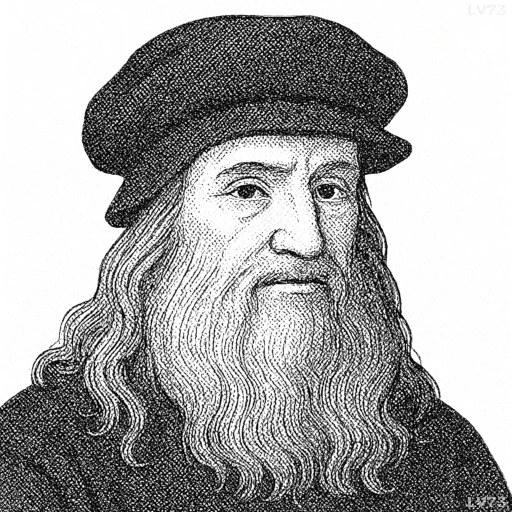“It seems that it had been destined before that I should occupy myself so thoroughly with the vulture, for it comes to my mind as a very early memory, when I was still in the cradle, a vulture came down to me, he opened my mouth with his tail and struck me a few times with his tail against my lips.”

- April 15, 1452 – May 2, 1519
- Italian
- A versatile man (painter, sculptor, architect, inventor, scientist, etc.)
table of contents
Quote
“It seems that it had been destined before that I should occupy myself so thoroughly with the vulture, for it comes to my mind as a very early memory, when I was still in the cradle, a vulture came down to me, he opened my mouth with his tail and struck me a few times with his tail against my lips.”
Explanation
In this intriguing quote, Leonardo da Vinci shares a personal and vivid memory from his early childhood. He describes an encounter with a vulture, which seems to have had a lasting impression on him, so much so that he later became fascinated with the bird in his studies. The image of the vulture using its tail to open his mouth and strike him seems both strange and symbolic, and it likely influenced Da Vinci’s later work, particularly his studies of birds and their anatomy. He reflects on this memory as though it were destined, as if the event was part of a greater plan that would lead him to study these creatures more deeply.
Historically, this account gives insight into the way Da Vinci’s childhood experiences might have shaped his later interests. The vulture, a bird known for its keen senses and symbolic associations with death and rebirth, may have sparked Da Vinci’s deep curiosity about the natural world. His eventual studies of anatomy, both human and animal, were informed by his lifelong fascination with the structures and functions of living creatures. This moment in his infancy, though seemingly unusual, could have marked the beginning of his long exploration of nature and biology.
In modern terms, this anecdote highlights the powerful role that early experiences can play in shaping a person’s future interests and passions. Da Vinci’s encounter with the vulture, whether symbolic or real, serves as a reminder of how formative memories can influence a lifetime of curiosity and learning. It also speaks to the mysterious and often subconscious ways that experiences shape our intellectual pursuits, sometimes leading us to dedicate our lives to studying particular phenomena. Da Vinci’s deep connection with the vulture and his eventual studies of birds is a perfect example of how childhood moments can guide and inspire a lifetime of exploration.
Would you like to share your impressions or related stories about this quote in the comments section?



